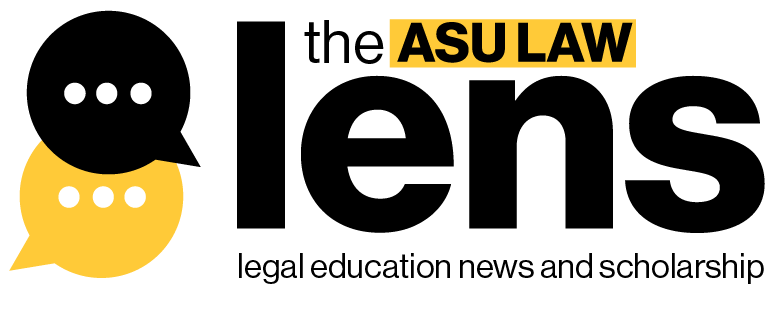ASU Law’s Academy for Justice joins effort to erase criminal records for deserving presidential pardon recipients, offering true second chances
In a significant step toward criminal justice reform, the Weldon Angelos Presidential Pardon Expungements Act (H.R. 10248) has been introduced in Congress, offering new hope to those who have received presidential pardons but still face the lasting consequences of their criminal records.
This bipartisan bill, introduced into Congress by Congressman and North Dakota Governor-elect Kelly Armstrong (R-ND), is a collaborative effort between Weldon Angelos of The Weldon Project, and Erik Luna, faculty director of the Academy for Justice at the Sandra Day O'Connor College of Law at Arizona State University.
The Academy for Justice is dedicated to bridging the gap between academic research and real-world criminal justice reform by making scholarly work accessible and actionable for policymakers, stakeholders and the public. The Weldon Project advocates for clemency and systemic reform for individuals incarcerated for nonviolent marijuana offenses and seeks to raise awareness and provide relief for those negatively impacted by prohibition. Together, the two aim to offer a true second chance for pardoned individuals by allowing them to petition for expungement of their criminal records.
“This legislation is groundbreaking. If enacted, it will be the first general expungement statute in federal history, addressing a centuries-old legal gap,” explained Luna. “While pardons eliminate legal penalties, they don’t erase the conviction record, which can hinder access to employment, education and housing. Congressman Armstrong’s bill bridges that gap, offering true second chances for deserving individuals.”
Angelos, who President Donald Trump pardoned after serving time for a nonviolent marijuana offense, emphasized the life-changing impact of the bill that bears his name.
“Having lived through the barriers that persist even after a full presidential pardon, this bill is nothing short of transformative,” Angelos expressed. “A pardon should truly offer a second chance. This legislation fulfills that promise by establishing a much-needed expungement process, which only Congress has the power to create.”
The bill has gathered strong support from advocacy groups, nonprofits and justice reform initiatives across the country. Brett Tolman, former U.S. attorney and executive director of Right On Crime said, “It is the rare few who are fully pardoned by a U.S. President, yet the recipients carry the weight of a criminal conviction for a lifetime. Every American deserves a chance to leave their worst mistakes behind them and become contributing citizens to their communities.”
The federal legislation addresses the important distinction between pardon and expungement in several ways:
- Expungement for Past Recipients: Those who have received a full presidential pardon can petition federal courts to clear their records.
- Streamlined Process for Future Pardons: A simplified petition process will benefit future pardon recipients.
- Exclusion of Unjust Pardons: The bill will ensure fairness by excluding cases where expungement would threaten public safety or violate the interests of justice, such as nepotistic pardons granted to family members of the sitting president.
The Weldon Angelos Presidential Pardon Expungements Act aims to eliminate the lasting stigma of a conviction, ensuring pardoned individuals can truly move forward with their lives.
Written by Crystal Jimenez
For the media
Legal studies research
Legal experts list
Media resources
Faculty directory
Staff directory
For all press and media inquiries, please contact: Kourtney Kelley, Assistant Director of Communications
law.media@asu.edu
480-965-6197
